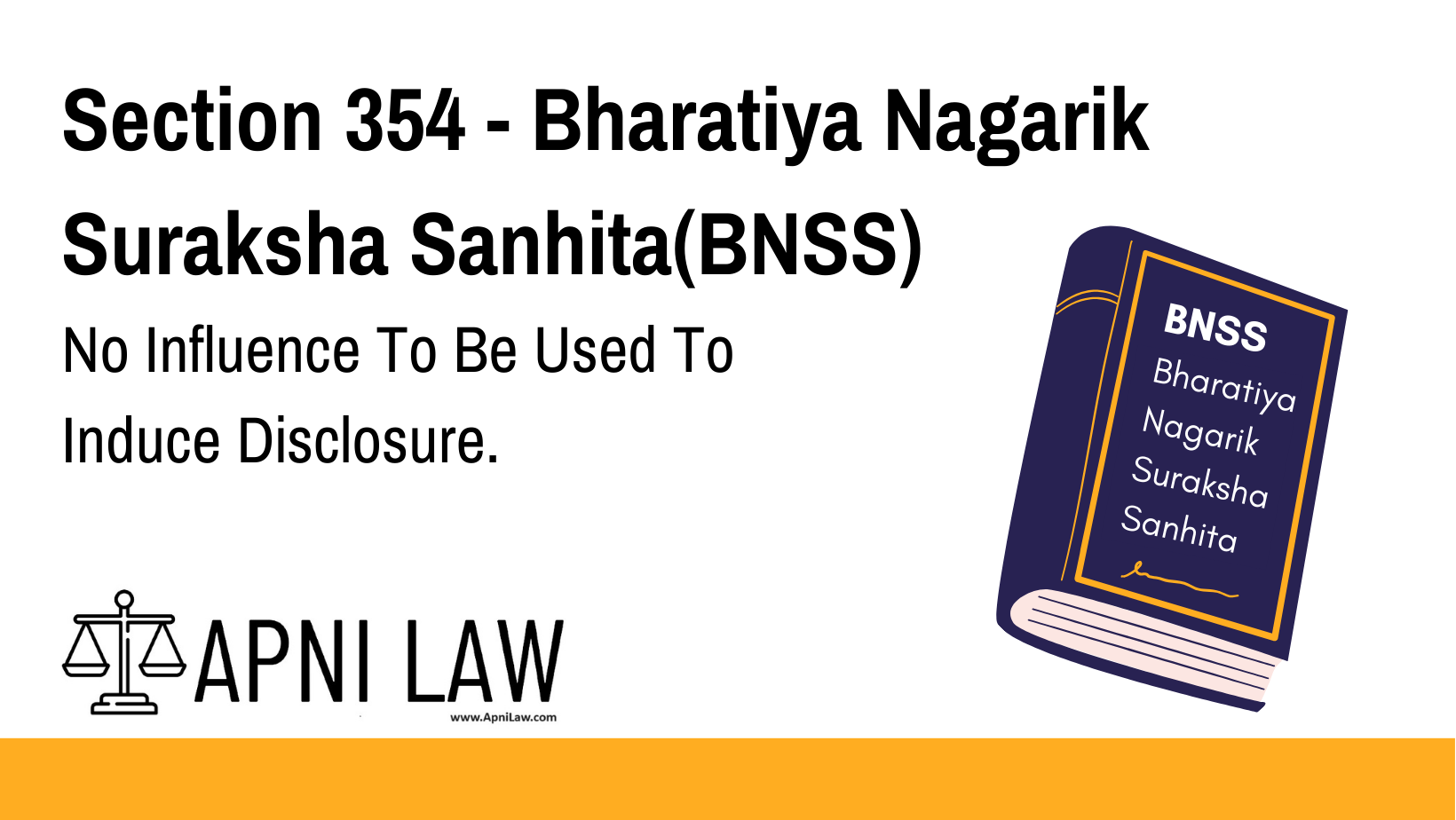BNSS Section 354
Code: Bharatiya Nagarik Suraksha Sanhita (BNSS) – Section 354
Explanation:
This section of the BNSS prohibits any undue influence on an accused person to force them to disclose or withhold information relevant to their case. This includes using threats, promises, or any other means to coerce the accused. The intent is to ensure that the accused’s testimony is voluntary and not influenced by external pressure.
Illustration:
Imagine a scenario where a police officer promises an accused person leniency in their sentence if they confess to the crime. This would be a clear violation of Section 354, as the officer is using a promise to induce the accused to disclose information.
Common Questions and Answers:
- Q: What happens if an accused person is influenced to confess or withhold information?
A: The confession or withholding of information obtained under undue influence is inadmissible in court. This means the court will not consider it as evidence. -
Q: Who is responsible for ensuring that an accused person is not influenced?
A: The investigating officer and the court have a responsibility to ensure that an accused person is not subjected to undue influence. -
Q: What are the exceptions to this rule?
A: Sections 343 and 344 of the BNSS provide exceptions to this rule. These sections deal with situations where the accused is compelled to disclose information in specific circumstances, such as when they are being questioned by a magistrate or when they are required to provide evidence in another case.










